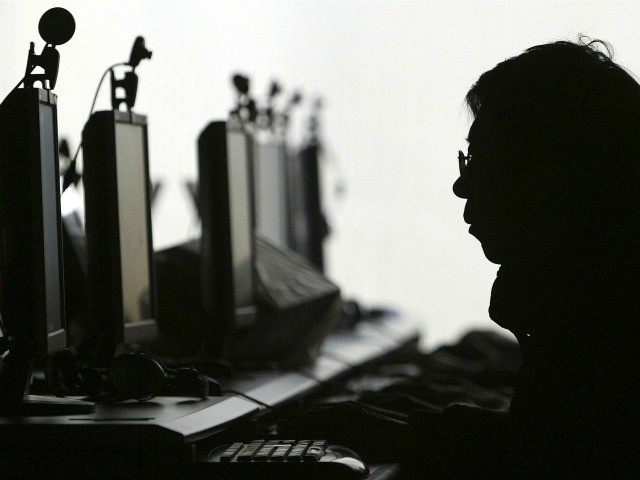China has banned three social media sites – the popular Sina Weibo, ACFUN, and iFeng.com, from streaming video until they are subject to a rigorous government review of their activity. The media involved include live video streaming.
The Chinese communist State Administration of Press, Publication, Radio, Film and Television (SAPPRFT) announced this week that the three sites, in particular, would be forced to cease streaming “audio-visual” content. The move, the agency argued, would “provide a clean and clear Internet space for the wide number of online users” and serve to combat companies who “advocated negative speech.”
Political speech received particular mention as a problematic category of content on social media, according to the Sydney Morning Herald‘s translation of the edict, though all such video appeared prohibited regardless of the kind of content the video is broadcasting. The ban appears to be in effect indefinitely until the sites in question complete a “comprehensive rectification and stop providing video.”
The outlet Quartz notes that live streaming on these websites has become extremely popular in China, both for news content and entertainment, while the Herald and Reuters note that the format had become increasingly common for newsgathering and a “rival to television networks.” Instead of relying on Chinese state-run propaganda outlets, Chinese people could turn to social media for faster, more accurate reports on issues they cared about, which clearly poses a threat to the state.
Just as the ban on video services on these social media sites broke, the Chinese state media outlet People’s Daily advertised a new program on the state-run CCTV’s Finance Channel on “amateur filmmaker” projects, encouraging Chinese people to create films “related to China’s achievements in recent years – for instance, the 4G telecommunications tower installed on a cliff, the Shanghai-Kunming high speed rail that has shortened travel time between the two cities to 10 hours, and artificial intelligence.”
The show appears to be attempting to attract individuals who make films for social media without government oversight with the promise of reaching a larger audience if they use their talents to advance the government’s agenda.
The live stream ban is the latest in a string of increasingly aggressive censorship moves from the communist state. Reuters notes that the government recently shut down sixty “celebrity gossip social media accounts” for violating the nation’s “core socialist values.” The Chinese state outlet Xinhua announced Friday that forty radio and TV commercials had been banned from the airwaves for “violation of state rules.” “Most of the commercials were for healthcare products, and banned for exceeding regulated time limits,” Xinhua reported.
This type of censorship has grown in the Xi Jinping era, from banning all Korean entertainment in protest of South Korea’s deal to install an American missile defense system to increasing the nation’s demands on Hollywood movies to conform with socialist values.
Last year, China banned an extensive and dizzyingly diverse list of topics from television altogether, including sex, witchcraft, time travel, “teenage romantic relationship,” smoking, “reincarnation,” and “unhappy marriages.” Months before handing down that ban, the Chinese government published a list of 120 pop songs it had decreed illegal due to their propensity to “harm social morality.” Among these were songs about beautiful Taiwanese women, suicide, and overt sexual activity.

COMMENTS
Please let us know if you're having issues with commenting.